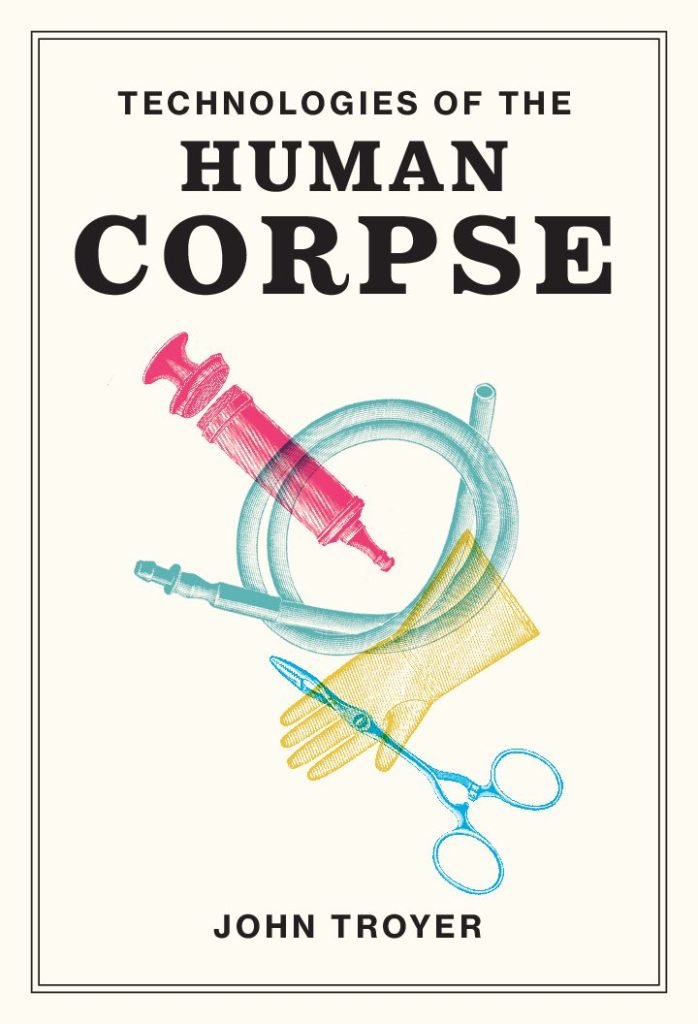
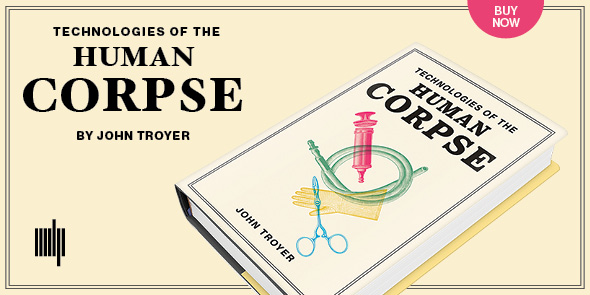
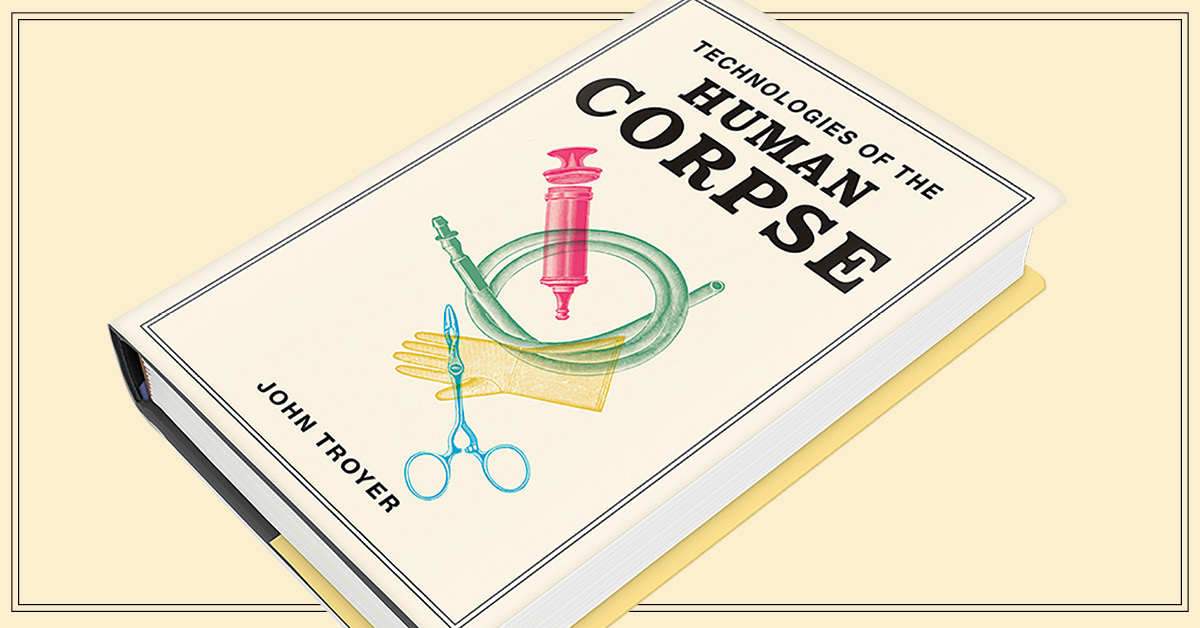


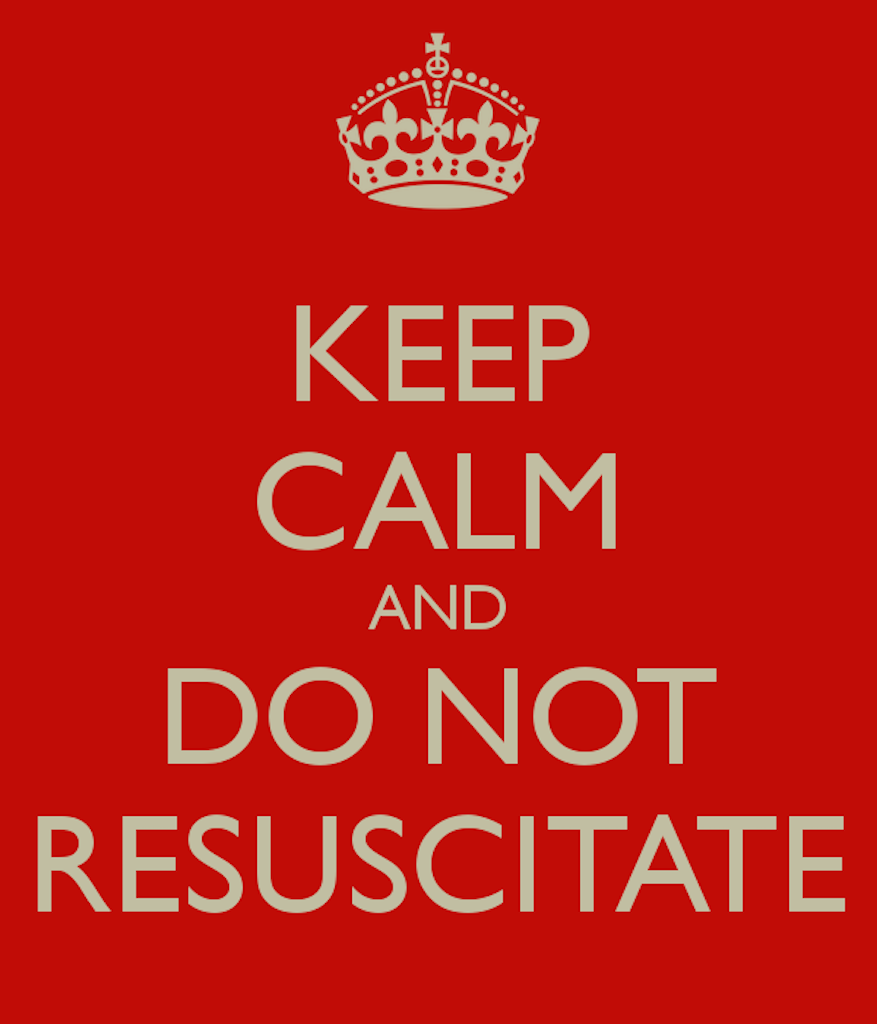
Dying Shouldn’t Be So Brutal
Ira Byock, New York Times (January 31, 2015)
Where is the public outrage over needless suffering at the end of life?
The New York Times has launched a new death and dying focused section for its Opinionator series called The End. No need to guess what The End will be about. All the news that fits to print now features:
…essays by people who work in fields dealing with death and dying, like medicine, ethics and religion, as well as personal essays by those who have experienced the death of a loved one.
It appears that the above essay by Ira Byock is The End’s first post and it’s really good. I’m hopeful that other essays for this series also tackle the politics of dying with such honesty.
Meg (Death Ref’s formatting guru and enforcer) reprimands me every time I quote long(ish) text from articles but I couldn’t resist this time. Here is a great section from Byock’s essay:
It’s high time we boomers shook off our post-menopausal and “low T” malaise and reclaimed our mojo. Remember Howard Beale, the fictional news anchor brilliantly portrayed by Peter Finch in the 1976 film “Network”? Fed up with the inequities of modern life, one night Beale exhorts viewers to go to their windows and yell, “I’m as mad as hell and I’m not going to take this anymore!” We’ll figure out the details later, he says; right now it’s time to yell. And, across the country, they do.
The persistently unsafe state of dying in America should provoke a Howard Beale moment. We’ll find solutions in various white papers and Institute of Medicine reports. First, we need outrage.
Byock also references the 1970’s hospice movement in his essay and I’m glad to see that. So much knowledge and awareness about 1970’s Death Movements has been forgotten and needs to be re-discovered. It was a moment in which choosing how to die became both personal and political.
Who knew that the Gray Lady recognised the need for something like The End. The Opinionator’s editors seem to respect and understand another of Byock’s crucial points from the essay: DYING is not easy, but it needn’t be this hard.
The Death Reference Desk will most certainly keep an eye on The End.
Coverage for End-of-Life Talks Gaining Ground
Pam Belluck, The New York Times (August 31, 2014)
Medicare may cover advance care planning that was once decried as “death panels,” and some private insurers are not waiting for the political process.
Maybe I’m being a bit unfair to the New York Times with this post’s title. It’s a good article. I recommend reading it.
That said, it should come as no surprise that patients, doctors, and even insurance companies (i.e., The MAN) want people to discuss end-of-life planning.
Most importantly, if people would momentarily stop saying that death is a taboo and that it’s a subject that nobody wants to discuss then it might actually encourage more of these end-of-life planning conversations.

Assisted Dying Bill: 2nd Reading on July 18, 2014
United Kingdom House of Lords Hansard (Published July 21, 2014)
The UK’s House of Lords has now published a full transcript, or Hansard, of its July 18, 2014 debate on assisted dying.
You can read more about that day’s debate here.
You can also catch up on all 5+ years of Death Ref’s posts on assisted dying here.
Just remember, the July 18 debate took 9 hours and 43 minutes to complete and involved 133 speakers.
The transcript is a bit long. That’s all we’re saying.
Actor Patrick Stewart joins campaign for ‘assisted dying’
BBC News (July 18, 2014)
Somehow, and I don’t entirely know the reasons, I completely missed these interviews with actor Patrick Stewart on the recent House of Lords assisted dying debate.
He’s got clearly articulated personal reasons for supporting Lord Falconer’s bill and understands how the proposed legislation would work. I also give him credit for supporting a cause that I can imagine some talent agents might suggest you avoid.
That said, he’s the kind of actor (and big name movie star) who doesn’t flinch when it comes to supporting causes he believes in.
Good interviews to watch.
Assisted Dying Bill [HL] 2014-15
Private Members’ Bill (Starting in the House of Lords)
Sponsor: Lord Falconer of Thoroton (July 18, 2014)
It’s an over used expression, but today was an historic day in the UK’s House of Lords.
After 9 hours and 43 minutes of debate, 133 speakers (although I’ve seen the number pegged at 129), and a deluge of extremely well spoken 4 minute speeches, the House of Lords approved Lord Falconer’s Assisted Dying bill for Committee review.
The graphic at the top of the page shows where Falconer’s bill now stands, in the Committee Stage. You can also download the bill and read it in full here.
It’s hard to tell whether or not the assisted dying bill will make it out of committee and onto further debate and voting, but I’m going guess no.
The popular support for an assisted dying law remains strong in the UK (around 75%-80%) but the political will in both houses of Parliament is low.
You can read the Death Reference Desk’s complete coverage of Assisted Dying issues over the last five years here.
The Guardian also ran a really interesting infographic piece today on the numbers of people who use assisted dying laws where it’s legal to do so.
Here is a link to the House of Lords video from today’s debate. I’ve also embedded the entire debate below.
It was thrilling and exhausting to watch today’s debate. I commend all of the speakers for their professionalism and delivery. More than a few times I wondered if this kind of respectful discussion could ever occur in the US Senate.
Per usual, the Death Reference Desk will keep the updates coming.

Moral Maze: Assisted Dying
BBC Radio 4 (July 16, 2014)
The Moral Maze programme on BBC radio is a long-running show dedicated to debating and understanding complicated issues.
Yesterday’s guests heatedly discussed assisted dying, suicide, euthanasia, human autonomy, the sanctitity of life, the list goes on and on.
Well worth gving a listen before Friday’s debate in the House of Lords on the assisted dying bill for England and Wales.
Here the programme’s description:
The issue of assisted dying is the moral discussion of our age and the latest effort to get it legalised comes before the House of Lords this week. The debate has been given new energy by the intervention of two former Anglican archbishops, Desmond Tutu and George Carey, who’ve now come out in support of the right of terminally ill people to end their lives – flying the face of the teaching of their church. There are a plethora of moral principles at stake and at the heart of them, which all sides acknowledge, the terrible suffering that some people go through at the end of their lives. What are the moral, ethical, philosophical and religious principles at stake in this debate? What happens when two moral principles collide and both sides could be right? What moral calculus can you apply to decide how to choose between right and wrong?
Featured speakers include Dr. Iain Brassington, Dr. Kevin Yuill, Professor Raymond Tallis and Professor Margaret Somerville.
David Cameron ‘not convinced’ over assisted dying bill
PM speaks of worry about legalising euthanasia, but says he would be very happy for Commons to debate issue
Rowena Mason and Agencies, The Guardian (July 16, 2014)
Today saw another interesting development in the lead up to Friday’s debate on assisted dying in the UK’s House of Lords.
Prime Minister David Cameron was asked about the upcoming debate during the weekly Prime Minister’s Questions (PMQs). The Prime Minister is asked everything and anything by members of parliament during the PMQs and, in theory, has to quickly formulate some kind of response.
His answer to the assisted dying question was intriguing. He made it clear that he thought the debate should move forward but that he personally didn’t support a change to the law.
He used the word ‘euthanasia’ in his response, which is a key word choice. The House of Lords is debating an assisted dying law, not a euthanasia law. Assisted dying laws usually mean a person is given a lethal dose of a drug and then that person has to physically administer and ingest the drug in order to die. Euthanasia occurs when one person puts another person to death, i.e., person A injects person B with a drug so that person B will die.
The words make a significant legal difference for any kind of death with dignity law.
You can watch video of the entire (relatively short) exchange starting at 28:20.
I also suggest watching the faces and reactions of the other MPs. It seems that right now many MPs would rather debate anything other than a law on assisted dying. This could change after Friday.

Assisted dying: leading doctors call on Lords to back legalisation
Twenty-seven leading figures write to every peer urging them to back Lord Falconer’s private members bill on assisted dying
Denis Campbell and Dominic Smith, The Guardian (July 15, 2014)
Church of England split over assisted dying as debate looms
Consensus on women bishops set aside as Lords examine Falconer’s bill, after support from Desmond Tutu and Lord Carey
Andrew Brown, The Guardian (July 15, 2014)
Yesterday’s 31 Days of Death post focused on the upcoming UK House of Lords debate on legalising assisted dying in England and Wales.
This entire week might become about Friday’s debate, so I’m turning today’s post into an update.
Two interesting developments.
A group of 27 medical authorities wrote letters to every House of Lord’s member encouraging them to support the proposed bill. This kind of letter writing campaign has happened before but this time it’s part of a larger shift in which slowly but surely religious leaders who support a change to the law are now speaking out. I focused on religion, in particular, yesterday.
The religious debate brings me to the second of today’s articles. The Church of England currently finds itself in a debate that I’m not entirely sure it expected before Friday’s debate. Before the week is out, I think that more Anglican supporters of assisted dying might make their support known. As I said yesterday, this theology discussion is extremely important to have in order to facilitate as a discussion about religious beliefs.
On the upside for the Church of England: women can now be Bishops, so at least that’s something.
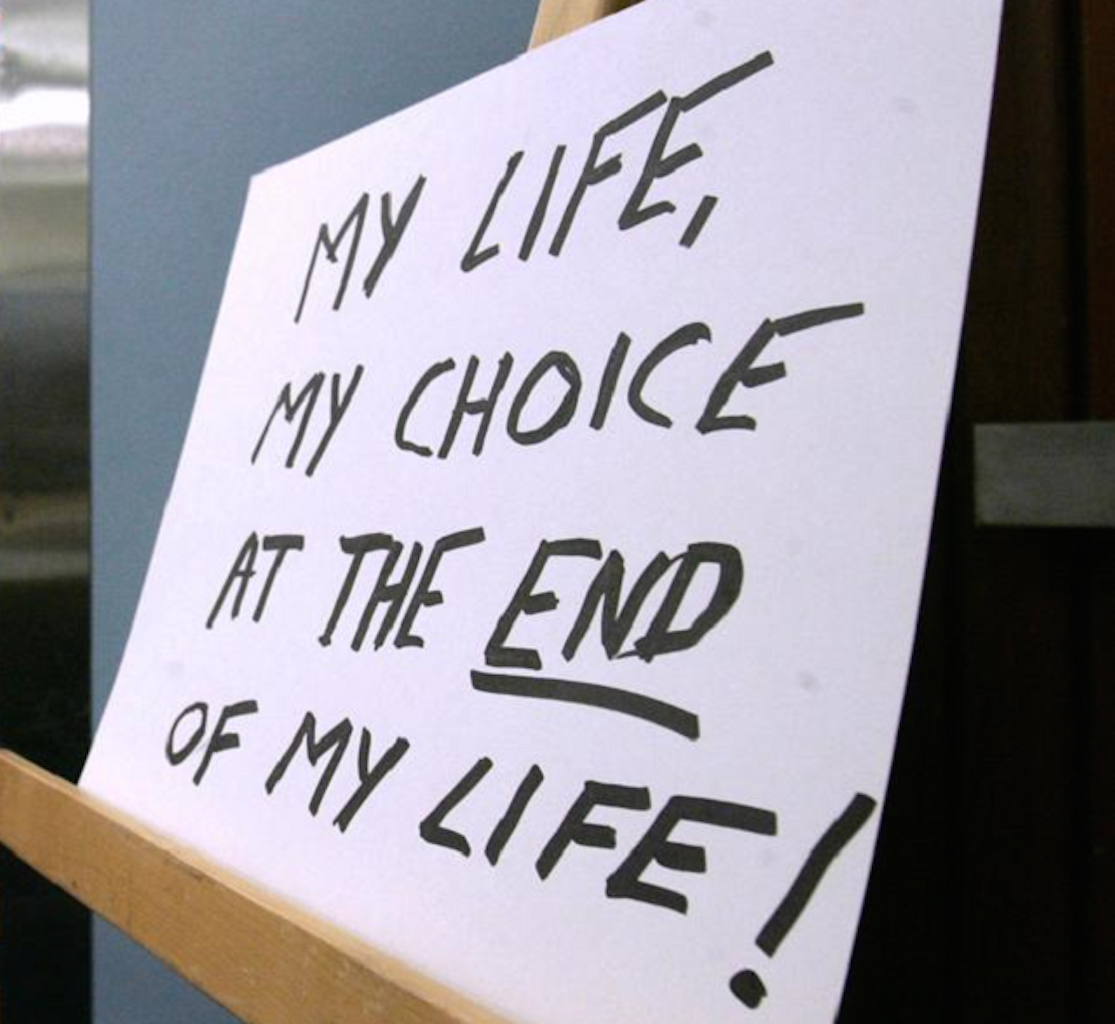
Religious activists have too much say over our right to die
The question of assisted dying needs to be discussed rationally and not held to ransom by minority zealots
Catherine Bennett, The Observer (July 05, 2014)
Former archbishop lends his support to campaign to legalise right to die
Carey says assisted dying proposal is way of preventing ‘needless suffering’ and helping terminally ill ‘not anti-Christian’
Nicholas Watt, The Guardian (July 12, 2014)
Church of England seeks inquiry over bill to legalise assisted dying
Bishop of Carlisle says church was ‘surprised’ by former archibishop’s support for Falconer Bill
Nicholas Watt and Shane Hickey, The Guardian (July 12, 2014)
Why I’m in favour of assisted dying
I have spent my life working for dignity for the living. Now I wish to apply my mind to dignity for the dying
Desmond Tutu, The Observer (July 13, 2014)
Assisted dying: change the law so that the terminally ill die with dignity
If the assisted dying bill becomes law, it will put an end to prolonged suffering
Observer Editorial, The Observer (July 12, 2014)
Parliament turns back to the question of assisted dying
The House of Lords is to debate Lord Falconer’s bill aimed at clarifying the law on the right to end one’s life
Daniel Boffey, The Observer (July 13, 2014)
Assisted dying has been legal in Oregon since 1997, but it remains surrounded by taboos
One woman described her husband’s death as ‘beautiful’, but many still believe it is morally wrong
Andrew Gumbel, The Observer (July 12, 2014)
Assisted dying bill must not stall in Lords, urges former lord chancellor
Lord Falconer of Thoroton calls on supporters to vote down any attempt to pass wrecking amendment on sensitive issue
Nicholas Watt, The Guardian (July 13, 2014)
This is an important week for Assisted Dying in England and Wales.
A bill brought forward in the House of Lords by Lord Faloner, and modeled on the Death with Dignity Act in Oregon will be debated this coming Friday, July 18, 2014.
The backstory on this proposed law is long and arduous. It’s also something that Death Ref has been closely following since 2009.
You can catch up on those stories with the Assisted Dying and Death with Dignity tags. You can also look through the Death + the Law category
What is most interesting about the upcoming debate is the sudden inclusion of religion into the discussion, and by individuals who support the bill based on religious beliefs. The articles at the top on former Church of England Archbishop Carey and the personal essay by Desmond Tutu threw significant theological weight behind support for the assisted dying bill.
One of the major differences between the US and UK when discussing assisted dying is the role of religion. In the US, I know quite quickly if a person opposes assisted dying for religious reasons. Interestingly enough, a number of libertarian leaning US Conservatives strongly support assisted dying, but it’s the fundamentalist Christian Conservative community that most vocally opposes it.
In the UK, the theological reasons aren’t that obvious even though religious beliefs often inform how a person thinks. The very first op/ed column by Catherine Bennett highlights how some UK Christian groups that oppose assisted dying make a point of setting aside their theological language in the hopes of not alienating non-religious (or Christian) people.
It’s important to know and understand if an individual is opposed to assisted dying for religious reasons so that you can then have a discussion about theology. Otherwise the discussion is about the law, which is a secular, human invention. The statements of support by former Archbishops Carey and Tutu have made that necessary theological conversation possible.
I’m not entirely sure what will happen this week but the Death Reference Desk will follow the events and post updates.
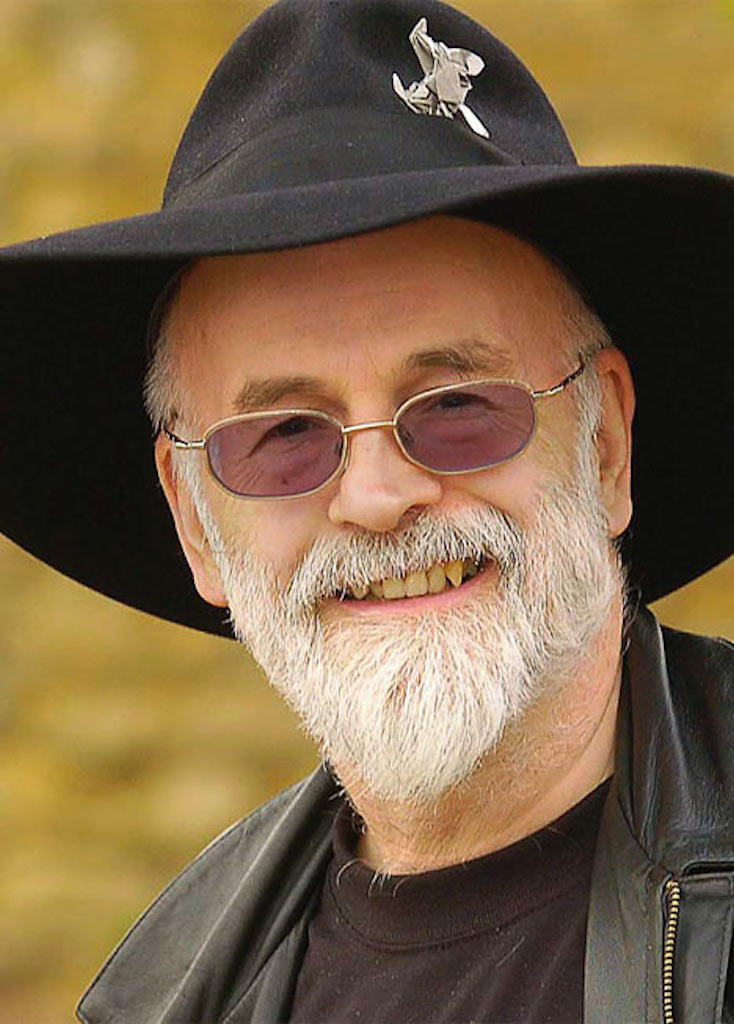
Top doctor says people who are dying need equivalent of midwives to help ease, and possibly end suffering and pain
Denis Campbell, The Guardian (July 1, 2014)
My work as a palliative care nurse inspired me to write The Top 5 Regrets of the Dying – I welcome Prof John Ashton’s call for end-of-life midwives
Bronnie Ware, The Guardian (July 3, 2014)
Terry Pratchett, Discworld author, diagnosed in 2007 with Alzheimer’s, has announced that ‘the Embuggerance is finally catching up with me’
Alison Flood, The Guardian (July 2, 2014)
Throughout this past week a series of news articles appeared in The Guardian newspaper about end-of-life decision making and assisted dying in the UK.
One of the very first posts that I ever wrote for the Death Reference Desk was on assisted dying in the UK. Over the past five-years, I’ve written countless variations on that same post. Again and again.
During the coming 31 Days of Death, I’ll spend time focusing on some of the specific reasons for the UK debate.
This week saw the coming together of different but related events. Professor John Ashton, who is president of the Faculty of Public Health in the UK stated that individual’s should be helped to die if and when they’ve decided a terminal condition is no longer worth fighting. This led Bonnie Ware, a Palliative Care Nurse, to say that she agreed and that more people should pay attention to the growing Death Midwife movement.
The entire week was capped off by author Terry Pratchett saying that he couldn’t attend an event in his honour because his Alzheimer’s Disease was finally stopping him. Pratchett personally entered the UK’s assisted dying debate in 2010 when he called for the creation of a tribunal to review a person’s request to end their life.
More on this in the coming weeks.
In the meantime, I recommend checking out The Guardian’s assisted dying page, the Death + The Law page here on the Death Reference Desk, and our Bioethics tag.
A Life-or-Death Situation
by Robin Marantz Henig, New York Times Magazine (July 21, 2013)
As a bioethicist, Peggy Battin fought for the right of people to end their own lives. After her husband’s cycling accident, her field of study turned unbearably personal.
For Bioethicist With Ailing Spouse, End-Of-Life Issues Hit Home
Fresh Air with Terry Gross, National Public Radio (July 25, 2013)
In 2008, a cycling accident left bioethicist Margaret Battin’s husband quadriplegic and dependent on life support technology. The accident forced Battin, a right-to-die advocate, to reflect on the positions she’s taken in the past and decide whether she still believes in them.
Last week, the New York Times and the radio programme Fresh Air with Terry Gross ran really good stories on US Bioethicist Peggy Battin. Both pieces are linked to above, and both are worth reading/listening to.
Peggy Battin has written about and been involved in end-of-life and right to die cases for thirty years. Her writings have always focused on individual autonomy when choosing to die. What makes Battin’s work (which is good) all the more compelling is this–five years ago her husband Brooke had a bicycling accident that resulted in him becoming a quadriplegic. He also relies on life support machinery for assisted breathing and to keep him fed.
Both the Times article and the Fresh Air interview focus on how Battin’s ideas about the right to die have changed since her husband’s accident. She freely discusses her own desire to see her husband continue living, even though he may ultimately decide to finally end his life. And her thinking on all these issues opens up the nuance and complexity of discussing what kind of death and what quality of death, a loved one wants.
I highly recommend both the article and the radio interview.